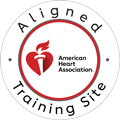Imagine a hole in the center of your vision, one you can’t look over or under, to the left or to the right of. A central vision obstruction like this is one of the salient characteristics of Macular Degeneration, a common cause of vision loss for persons over age 50.
It results from damage to the macula–the center of the eye’s retina, which is needed for clear straight ahead vision. Millions of light sensors in these most sensitive areas of the retina at the back of the eye are needed to send electronic signals through the optic nurse to the brain, where images are translated into a navigable world.
The advance of the disease is slow in most cases, but can occur quickly. It can occur in one or both eyes, beginning with a blurred center of vision, a loss of overall brightness and a blank spot. The center field of vision is dark, distorted and blurry. When it occurs in just one eye, as is often the case, the other eye compensates so that the person may not be aware of a loss of vision. This is why routine eye exams are necessary, especially in individuals over age 50.
Macular Degeneration results in hampered vision, and not usually in complete blindness unless other complicating factors are in play. But even so, the results of Macular Degeneration can be life shattering. Reading, writing, cooking, recognition of faces, and any close work will be difficult to the point of impossible. A person’s daily activities will have to be wholly altered to adapt to the new visual limitations.
To avoid Macular Degeneration, older individuals should have routine eye exams and in addition should manage any other diseases. Smoking is harmful to the eyes, and is a known risk factor. It doubles the risk of Macular Degeneration. People should stay at a healthy weight to lessen their chances of Macular Degeneration. Further, they should exercise regularly, as we all should for many reasons. A nutritious diet featuring fruits, leafy green vegetables and fish should be adopted.
A study from the National Health Association (NHANES) and published in the Journal of American Geriatrics examined the effect of wine drinking on Macular Degeneration. The lowest risk seemed to be for persons drinking one glass of wine per month. Beer and liquor seemed to have no effect. The study has since been questioned (American Macular Degeneration Foundation, 1998).
Zeaxanthin, an ingredient found in corn, spinach, collards, orange juice, lettuce, oranges, tangerines, and peas (in that order of decreasing strengths) seems helpful. High doses of certain vitamins may also be helpful, as formulated by the National Eye care Institute (2005).
| Vitamin C | 500 mg |
| Vitamin E | 400 mg |
| Zinc | 80 mg |
| Copper | 2 mg |
| Beta Carotene or lutein or Zeaxanthin | 15 mg |
Other known risk factors include ethnicity: Caucasians have a higher rate than African American or Hispanics. A family history of Macular Degeneration is also a risk factor as genetics seem to predispose persons to the condition.
Lifestyle factors other than avoidance of smoking include a close monitor of blood pressure, an exercise regimen and a diet of fish and green, leafy vegetables.
Detection of Macular Degeneration begins with a visual acuity test which checks for distances in vision. A Dilated Exam follows in which drops for the back of the eye allow a view with the use of a magnifier. Amster Grid tests are used to show the extent of the loss, and Fluorescein angiograms look for leaks in the arteries of the eye, using a dye injected in the arm of a patient. Optical coherence tomography is also used, with light waves providing a painless detection test.
The eye care professions are looking for drusen, a yellow deposit that accompanies the aging process. Another sign is pigment changes under the retina. Dark clumps of released pigment are seen, which do not affect the eye color, but surround the retina from underneath.
In the early stages of Macular Degeneration, the drusen is the width of a hair and no vision loss is yet reported.
In the intermediate state large drusen is seen, with some vision loss.
In the late stages, geographic atrophy, or dry Macular Degeneration is having a gradual breakdown. With neovascular Macular Degeneration, or wet, the blood vessels under the retina are seen to leak fluid and blood. Swelling and damage to the eye is occurring.
The early stages show few symptoms, and not all Macular Degeneration will develop. If it is in one eye only, only 5% of persons will get advanced Macular Degeneration in 10 years. With both eyes affected, 14% will get advances stages in 10 years (National Eye care Institute, 2014).
Treatment is not required for early states. Lifestyle changes may help and be recommended. With Intermediate stages high dosage vitamins may be prescribed.
In advanced stages, injections of anti vascular endothelial growth factor may be done the multiple monthly injections. The eye is numbed and cleaned first. The injections are made and antibiotic drops are prescribed afterwards.
Photo dynamic therapy laser treatments may be used with a drug injected in the arm, to allow the laser to close vessels in the eye. This procedure is less common and mostly used in combination with other treatments.
Macular Degeneration strikes fear in patients and their loved ones. It is a diagnosis one never wants to hear, but it does not predict total blindness. It can be slow in advancing, compensated for, or treated. As with any unfavorable diagnosis, support groups can be helpful. Low vision adjustments such as reading glasses, magnifying glasses, and other accouterments can help persons find normalcy in the midst of visual limitations.
References
Mayo Clinic, “Dry macular degeneration,” http://www.mayoclinic.org/diseases-conditions/macular-degeneration/basics/prevention/con-20075882 accessed May 3, 2015.
American Macular Degeneration Foundation, http://www.afb.org/directory/profile/american-macular-degeneration-foundation/12 accessed May 3, 1015.

